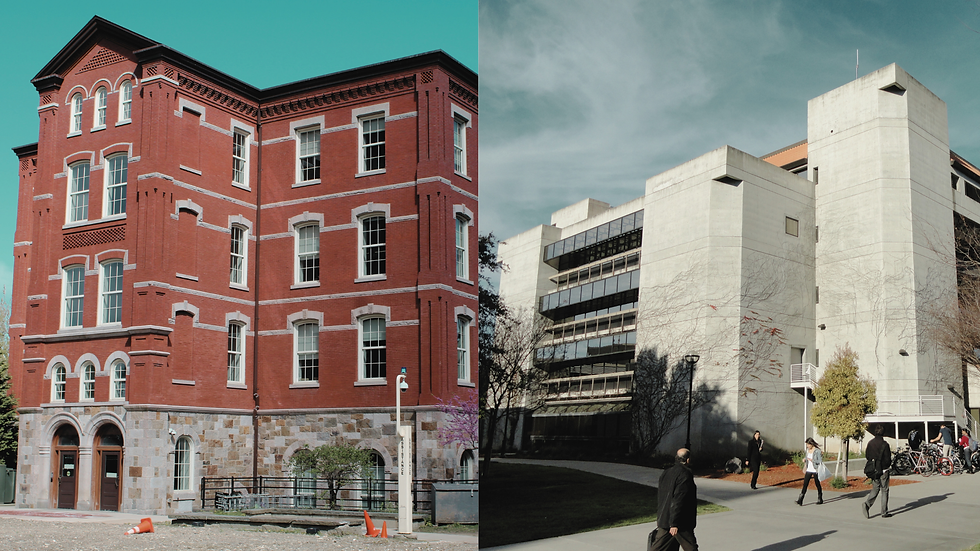University Students in Iran Punished for Protesting Widespread Poisoning of Iranian Schoolgirls
- Kennedy McCutchen
- Mar 21, 2023
- 3 min read
Updated: Mar 24, 2023

As the Women, Life, Freedom protests in Iran sparked by the death of Mahsa Amini in September 2022 continue, the government crackdown intensifies, primarily targeting young female students. Most recently, Iranian and international human rights organizations have documented the widespread poisonings of at least 7,000 schoolchildren, most of whom are young girls between the ages of 12-18. On March 8, 2023, dozens of university students in Tehran and Tabriz coordinated protests condemning these widespread chemical attacks and demanded more information from the Iranian authorities, who thus far have remained reluctant to address or disclose details about the poisonings.
The peaceful university protests were met with intimidation and violence by security forces, a tactic that has come to characterize the regime’s repressive attitude towards dissent and free speech, particularly against university students. According to reports from Iran’s Student Union Council, at least 40 students at Tabriz University of Medical Sciences were summoned by university disciplinary committees following the protest’s dispersal, and another 30 students were barred from entering Allameh University’s campus in Tehran.
Cases of poisonings, which have been documented since November 2022, have occurred in 290 schools across 28 provinces in Iran and have caused multiple symptoms, including “respiratory distress, numbness in limbs, heart palpitations, headaches, nausea, and vomiting.” Alongside the thousands who have fallen ill, one death of an 11-year-old girl has been reported, while other young girls have been hospitalized to address acute respiratory problems.
Government officials were initially dismissive of the poisonings and reluctant to take prompt action. Statements from Iran’s Education Department had even suggested that the poisonings were a form of “mass hysteria” and that the girls who suffered from chemical exposure were merely plagued by “fear and worry.”
It was not until March 6, nearly four months after the first poisoning reports, when Ayatollah Ali Khamenei described the months-long attacks as an “unforgivable crime” and created a task force to investigate the poisonings. While government authorities have arrested at least 100 individuals in connection with the attack, the Interior Ministry has yet to release additional information about their supposed investigations and has gone to great lengths to cover-up reports by detaining individuals who have “spread rumors” about the poisonings. Several students hospitalized from the poisonings have also allegedly been warned to “remain silent” by security forces.
To address the disastrous and suspicious government response, 326 Iranian university professors produced a letter condemning the “organized chemical attacks” and warning the regime that “covering up the crime…will be considered as declaring the sovereignty of complicity and alignment with this crime.” The Middle East Studies Association (MESA) released a similar letter stating their fear for the poisonings’ “negative implications on girls’ and women’s education” and demanding an “independent investigation of the poisonings under the guidance of relevant international treaty parties.”
Endangered Scholars Worldwide (ESW) joins MESA and other organizations in condemning the widespread poisoning of Iranian school girls carried out by those seeking to repress educational opportunities for women and girls and intimidate those who protest the flagrant injustices perpetrated by the Iranian regime in the wake of the Women, Life, Freedom revolution. ESW remains deeply concerned about the status of academic freedom in Iran, and we continue to support the Iranian protestors, including students, academics, and civilians, who for decades have been living under systematic discrimination, abuse, and oppression by Iran’s Islamic Republic. We call upon all international organizations, academic and professional associations, and other groups and individuals devoted to the promotion and defense of human rights and academic freedom to strongly protest and condemn the inhumane actions of the Iranian government and security forces; to ask for the unconditional release of all banned and arrested student protestors and a halt to all executions; to demand that student protestors who have been banned from their campuses be permitted to reenter; to provide for an independent investigation of the poisoning attacks; and to support the local protests on behalf of Mahsa Amini and the Iranian students, who continue to advocate for justice and freedom.
Please send appeals to the following:
Ayatollah Ali Khamenei
The Office of the Supreme Leader
Jomhouri Street
Tehran
Islamic Republic of Iran
Fax: +98 21 644 11
Website: http://www.leader.ir/langs/en/
Facebook: https://www.facebook.com/www.Khamenei.ir
President Raisi
The Office of the President
Palestine Avenue, Azerbaijan Intersection
Tehran
Islamic Republic of Iran
Javad Zarif
Minister of Foreign Affairs
The Minister’s Office
Imam Khomeini Square
Tehran
Islamic Republic of Iran
Fax: +98 21 66743149
Website: http://www.mfa.gov.ir
Facebook: https://www.facebook.com/jzarif
Michelle Bachelet
United Nations High Commissioner for Human Rights
Office of the United Nations High Commissioner for Human Rights
Palais des Nations
CH-1211 Geneva 10, Switzerland
Email: InfoDesk@ohchr.org
Sources:




